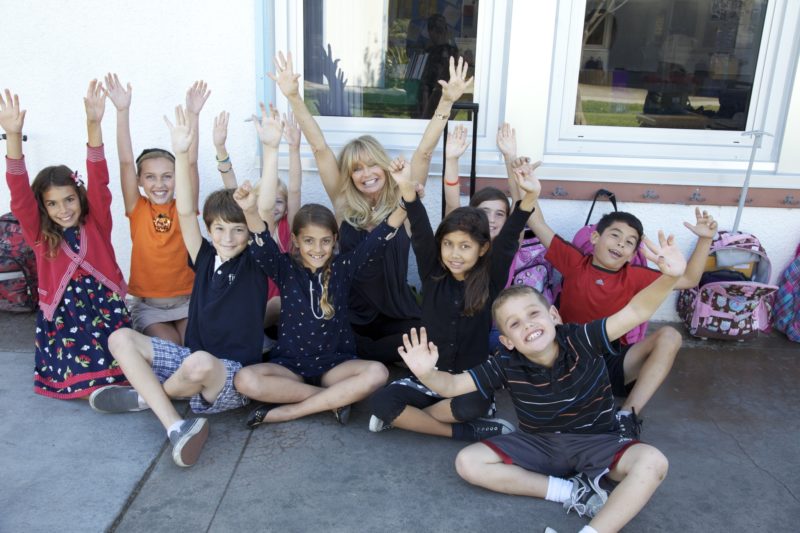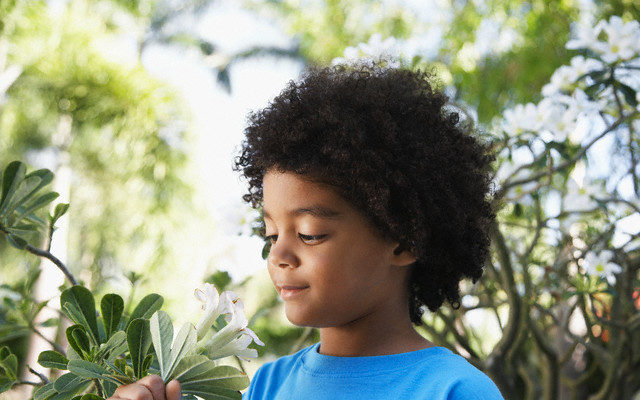This month, we’re partnering with MindUP for Life: The Goldie Hawn Foundation, to raise funds and awareness for children’s mental health. ONEHOPE has proudly donated $25,000 to MindUP to provide 10,000 children with the resources, education, and support needed to thrive in both school and life. Learn more about the incredible things this organization is doing in our Q&A with Carrie Patterson, Managing Director at MindUP, below.


1. How was MindUp for Life started and what is its mission?
MindUP™ | The Goldie Hawn Foundation is a not-for-profit organization founded to help children develop the mental fitness necessary to thrive in school, work, and life. MindUP was created in response to the global epidemic of childhood aggression, anxiety, depression, and suicide. Developed by a team of experts focusing on four pillars: neuroscience, social-emotional learning (SEL), positive psychology and
mindful awareness, MindUP fosters the development of mental fitness and well-being of both children and educators.
Transition from MindUP to MindUP For Life:
The signature program of the non-for-profit organization The Goldie Hawn Foundation has shared its new visual identity and brand positioning as MindUP for Life. The rebrand announcement signals the expansion of the organization’s universal evidence-based program beyond youth, to further support parents, teachers, and adults.
For nearly two decades, MindUP has striven to provide children the knowledge needed to successfully manage stress, regulate emotions, and face the challenges of the 21st century through its simple-to-administer curriculum and activities. To help alleviate the mental distress of those involved in every level of childhood education and growth, MindUP is evolving to become MindUP for Life.
2. What is the importance of fostering positive mental health starting from a young age?
MindUP provides the vehicle for whole-child, whole-school, and whole-community transformation. Children and young people are the most precious resource for a better world, and their mental health is one of the most pressing issues of our time. We need to educate the heart and mind within an education system that places well-being at the very core of its values and practices.
MindUP is grounded upon four pillars of research to practice foster children’s well-being and resiliency:
- Neuroscience
- MindUP teaches children about the brain with a specific focus on how the brain regulates emotions and stress.
- Understanding the structure of the brain and how it functions gives children a sense of control and empowerment that supports their abilities for self-regulation and learning readiness.
- Mindful awareness
- Children learn mindful awareness practices that facilitate attention, self-regulation, and well-being.
- Research has found that people who can regulate their emotions are more likely to show empathy and to act pro-socially towards others.
- Positive Psychology
- MindUP infuses strategies derived from the science of happiness to provide children with skills to foster well-being.
- Research has revealed that positive emotions lead to a broader scope of attention and greater motivation.
- Social and Emotional Learning (SEL)
- SEL is the process by which individuals attain and effectively apply the knowledge, attitudes, and skills necessary to: identify and manage their emotions, understand another’s perspective and show empathy for others, set and achieve positive goals, develop and sustain positive relationships;, and make responsible decisions.
- SEL skills are malleable and can be taught. These skills are predictive of not only school success but also of future life success including educational attainment and mental health.
3. What types of tools do you provide children to help them manage stress, depression, and suicide?
MindUP is an evidence-based universal primary prevention program with an implementation design that enables the program to reach all children, including those who often fall under the radar in regards to mental health support. Specifically, children who are experiencing internalizing disorders such as, anxiety and depression are often not identified as their distress is less noticeable than those who are experiencing externalizing issues such as ADHD or conduct disorder. MindUP’s classroom-based teacher delivered program helps to ensure more equitable access to mental health programming.
The MindUP program has been designed intentionally to address the global epidemic of increased depression, suicide, and stress:
- MindUP is a strengths-based approach, meaning it is designed to promote student agency to build self-awareness and capacity for social and emotional growth.
- The skills taught in the program are designed to build social emotional competence and resiliency in order to ameliorate the impact of adverse childhood experiences and promote school and life success.
- MindUP takes a trauma-informed approach, and we will be introducing a trauma-informed course for educators that complements our training for the 2021/2022 academic school year.
- The first component in the MindUP program is designed around building community with an equity lens to ensure classroom and school environments are set up so that children feel safe, connected, engaged, and ready to learn. Specialized training is included to support teachers to create safe spaces, understand bias, and promote student voice and agency in the classroom.
- We take a systemic approach to SEL by providing training and resource support to the entire community. This includes administrators, district leadership, families, caregivers, teachers and all school staff. Supporting whole community adoption facilitates whole child transformation. It is through this approach we see a school-wide shift in mindset and culture.
- MindUP teaches children how to focus attention, manage stress, nurture their own well-being, and respond to others with empathy.
4. What resources do you recommend for parents looking to practice mindfulness with their families at home?
We will be launching a MindUP For Families program this summer which will include training and resources to support our families (parents and caregivers).
Other recommendations and organizations we have partnered with include:
- Insight Timer: Free meditation app and in partnership we have 4 guided meditations (Brain Breaks)
- Moshi: Children’s sleep app. Goldie the moshling has a free bedtime story.
- Ten Mindful Minutes: Goldie’s book is directed to families and simple activities they can do at home.
5. How can others get involved and support MindUp for Life?
- Donate
- Join our mailing list and receive monthly updates
- Join our global community – launching this summer with many resources for our families.


Support MindUP for Life Through ONEHOPE
If you’re looking for more ways to support this organization, visit our fundraiser or host an event where 10% of every purchase goes directly to MindUP for Life. Together we can make an even greater impact in the lives of children and their families.




1 Comment
Thank You very much for this beautiful article. I enjoy reading it. I appreciate your ideas. Great thoughts with a great mind.